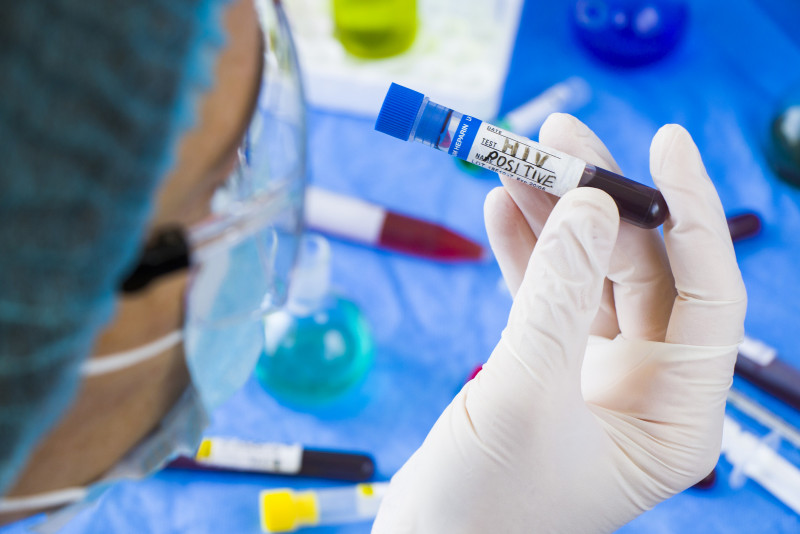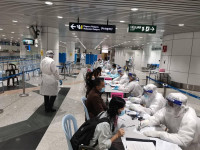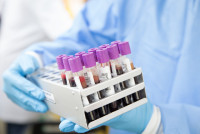"THE end of AIDS" is still possible by 2030, the United Nations insisted Thursday, but cautioned that the world's deadliest pandemic could only be halted if leaders grasped the opportunity.
"AIDS can be ended by 2030," the UNAIDS agency said as it outlined a roadmap of investment, evidence-based prevention and treatment and tackling the inequalities that are currently holding back progress.
UNAIDS said that ending the pandemic was, above all, a political and financial choice. "Success is possible – in this decade," said executive director Winnie Byanyima.
The UN first set out in 2015 the target of ending AIDS as a public health threat by 2030.
Byanyima said the greatest progress on HIV – the virus that causes AIDS – was being made in the countries and regions that have invested strongly.
She cited eastern and southern Africa, where new HIV infections have dropped by 57% since 2010.
Botswana, Eswatini, Rwanda, Tanzania and Zimbabwe have already achieved what are called the 95-95-95 targets.
This means that 95% of those living with HIV know their status; 95% of those who know they have HIV are on life-saving anti-retroviral treatment; and 95% of people on treatment achieve viral suppressed.
At least 16 other countries are close to achieving the target.
They include eight in sub-Saharan Africa – the region where 65% of HIV-positive people live – and Denmark, Kuwait and Thailand.
39 million living with HIV
In a report, UNAIDS said that two decades ago, the global AIDS pandemic seemed unstoppable, with more than 2.5 million people acquiring HIV each year and AIDS claiming two million lives annually.
But the picture is now dramatically different.
"There is an opportunity now to end AIDS by increasing political will by investing in a sustainable response to HIV through financing what matters most: evidence-based HIV prevention and treatment, health systems integration, non-discriminatory laws, gender equality, and empowered community networks," the report said.
UNAIDS said that in 2022, 39 million people globally were living with HIV, of whom 29.8 million were accessing anti-retroviral therapy. Those missing out include 660,000 children.
The numbers on anti-retroviral treatment have near quadrupled from 7.7 million on 2010.
Furthermore, 82% of pregnant and breastfeeding women living with HIV had access to anti-retroviral treatment in 2022, compared to 46% in 2010 – which has led to a 58% drop in new infections in children.
Around 1.3 million people became newly infected with HIV last year – down 59% from the peak in 1995.
Meanwhile 630,000 died from AIDS-related illnesses.
"Overall, numbers of AIDS-related deaths have been reduced by 69% since the peak in 2004," the report said.
'Dependent on action'
"The end of AIDS is an opportunity" for today's leaders to be remembered as "those who put a stop to the world's deadliest pandemic", said Byanyima.
"We are hopeful, but it is not the relaxed optimism that might come if all was heading as it should be. It is, instead, a hope rooted in seeing the opportunity for success, an opportunity that is dependent on action."
Funding for HIV fell back in 2022 to US$20.8 billion – around the same level as in 2013, and well short of the US$29.3 billion needed by 2025.
While five countries decriminalised same-sex sexual relations in 2022 and 2023, laws that criminalise people from key populations, or their behaviours, remain in place in many nations, UNAIDS said.
The HIV pandemic continues to impact key populations more than the general population, it added.
In 2022, compared with adults aged 15-49 in the general population, HIV prevalence was 11 times higher among men who have sex with men; four times higher among sex workers; seven times higher among people who inject drugs; and 14 times higher among transgender people. – AFP, Juy 14, 2023








_and_lord_mayor_rajendran_posing_in_a_mock_up_lrt-Ian_pic.jpeg)





.jpeg)




